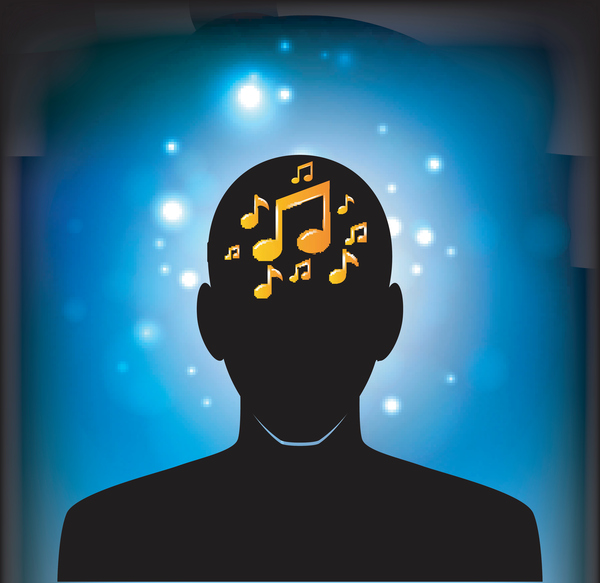国际著名媒体Haymarket Media旗下的Psychiatry Advisor网站对重点实验室尧德中教授团队针对精神分裂症的研究进行了正面报道,针对精神分裂症的音乐干预工作对该团队的罗程教授进行了专访。认为的该团队针对精神分裂症的音乐干预治疗工作很有意义,对精神分裂症的临床治疗有积极的建议作用。
幻听是精神分裂症最常见的一种阳性症状(超过50%的精神分裂症患者具有幻听),它将导致患者针对幻听内容做出不正常的应对,存在自伤和伤人的高度风险,也严重影响患者的日常生活。患者在接受药物治疗的基础上,还需要进行其他的干预手段才能很好地控制症状。尧德中教授团队从2015年开始采用队列设计探究精神分裂症音乐干预的脑机制问题。利用多模态神经成像和机器学习技术,发现音乐干预能够有效地改善初级脑功能区和脑岛区域的功能特征。正是由于这种改善作用,调节了精神分裂症患者对视-听信息的加工过程(自下而上通路),从而达到缓解症状的效果。
Haymarket Media是一家具有60余年历史的国际著名专业媒体,旗下建立了多个服务于临床专业技术人员的多个专业医学网站,例如Cancer Therapy Advisor(癌症治疗),Neurology Advisor(神经疾病),Psychiatry Advisor(精神疾病)等。Psychiatry Advisor主要为精神疾病专业医护人员提供专业的综合临床、药物等信息和资源,以优化对患者的临床诊治。
报道链接:
相关论文:
He H, Yang M, Duan M, et al. Music intervention leads to increased insular connectivity and improved clinical symptoms in schizophrenia. Front Neurosci. 2018;11:744.
报道原文:
Effects of Music on Symptoms of Schizophrenia
Approximately 60% to 80% of patients with schizophrenia spectrum disorders experience auditory hallucinations, which have been linked to high levels of anxiety (75%) and severe depression (60%) in this population.1 In addition, auditory hallucinations are associated with an increased risk of harming oneself or others,2 and they have a negative effect on all aspects of daily life, including work, self-care, and relationships.1 Quality of life is also significantly impaired in these patients.

Auditory hallucinations persist in up to 50% of patients, despite their receiving pharmacological therapies, underscoring the need for additional interventions to address these symptoms.1 Several psychosocial techniques have demonstrated effectiveness in this regard, including music therapy, which has been associated with significant reductions in symptoms, such as hallucinations, in various studies.
In a randomized controlled trial published online in August 2018 in Issues in Mental Health Nursing, researchers investigated the effects of a music intervention on quality of life and symptoms in patients with schizophrenia and auditory hallucinations who were being treated at a Turkish hospital.1 Of the 28 patients (78.6% women) enrolled in the study, 14 were assigned to a music intervention based on the Rast tonality of Turkish music, which is said to affect the body “both physically and mentally, has effects on muscles, provides relaxation, and induces feelings of joy, peace, vitality, comfort, relief, and happiness,” and 14 were assigned to a nonmusic control group.
At discharge and follow-up, the results showed reduced scores on measures of hallucinations and positive formal thought, as well as total Single Assessment Process scores, in the experimental group compared with scores obtained during hospitalization. Six months after discharge, quality-of-life scores had improved in multiple domains. “In line with these results, listening to music may be recommended to cope with auditory hallucinations and to provide positive quality of life,” the researchers concluded.
A longitudinal study published in January 2018 in Frontiers in Neuroscience examined the effects of a classical music intervention on patients with schizophrenia (n=36), who were assigned to a 1-month Mozart music intervention group or a no-music group; both groups were receiving treatment with antipsychotic drugs.3 A control group consisted of 19 healthy individuals.
On the basis of functional magnetic resonance imaging and machine learning techniques, the results demonstrated that the music intervention was linked to increased functional connectivity in the dorsal anterior insula and posterior insula networks after 1 month, although the effects were not sustained at the 6-month follow-up.
“Together, these findings revealed that the insular cortex could potentially be an important region in music intervention for patients with schizophrenia, thus improving the patients’ psychiatric symptoms through normalizing the salience and sensorimotor networks,” the authors wrote.
Psychiatry Advisor checked in with study coauthor Cheng Luo, PhD, associate professor of neuroimaging and neuroengineering at the School of Life Science and Technology at the University of Electronic Science and Technology of China, for further discussion about his study results and the broader topic of employing music in the treatment of schizophrenia.
Psychiatry Advisor: Overall, what does the research suggest thus far about the therapeutic effects of music on patients with schizophrenia, and what are the proposed underlying mechanisms?
Dr Luo: In general, [the data suggest that] music may improve
communication,
social functioning,
cognitive behavior, and
emotion in mental disorders.
In our study, we used noninvasive functional magnetic resonance imaging to investigate the effects of a classical music intervention in patients with schizophrenia and found that it normalized the functional connectivity of the insula. Dysfunction of the insula, which provides the basis for monitoring external environments and processing sensory information, may contribute to clinical symptoms in schizophrenia. Thus, the underlying mechanisms of the music intervention may be related to its normalizing effects on insular function in schizophrenia.
Psychiatry Advisor: What do your recent findings add to our understanding of the effects of music on patients with schizophrenia?
Dr Luo: Our results indicate that music interventions could improve the integration of primary sensorimotor information in patients with schizophrenia. If they have false processing of faces or voice information resulting from primary sensorimotor deficits, the higher-order system will relay inaccurate feedback and then lead to positive symptoms. Thus, the music intervention might help regulate the bottom-up processing of input, and thus improve the overall clinical symptoms in schizophrenia.
Psychiatry Advisor: What are the relevant treatment implications of these observations for clinicians?
Dr Luo: Music interventions may improve clinical symptoms in schizophrenia, especially for positive symptoms. Although these normalized effects were no longer sustained after 6 months, this represents a good option to improve the symptoms of schizophrenia, in addition to a stable drug treatment strategy.
Psychiatry Advisor: What should the next steps be in terms of research in this area?
Dr Luo: First, the intervention should be studied in additional patients with schizophrenia to determine its efficacy, and optimal treatment design should be established (for example, a 1-month music intervention with a 3-month break).
References
1. Pinar SE, Tel H. The effect of music on auditory hallucination and quality of life in schizophrenic patients: a randomised controlled trial. Issues Ment Health Nurs. 2018;15:1-8.
2. Andrew E. Command hallucinations and the risk of violence and self-harm: What distinguishes compliers from non-compliers? [dissertation]. Ann Arbor, MI: ProQuest; 2010.
3. He H, Yang M, Duan M, et al. Music intervention leads to increased insular connectivity and improved clinical symptoms in schizophrenia. Front Neurosci. 2018;11:744.